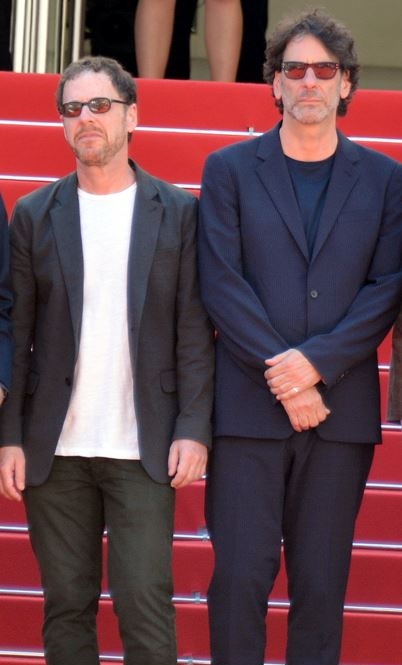 |
Craig White's Literature Courses Critical Sources Jews in Literature & Comedy |
 Ethan & Joel Coen, b. 1957, 1954. |
Jewish immigrants and their descendants have enjoyed an impressively disproportionate presence in the American professional, literary, intellectual, and entertainment worlds, comparable in some ways to the Puritans of New England—another "people of the book."
![]()
Jewish American writers
Emma Lazarus (1849-87), wrote "The New Colossus" inscribed at Statue of Liberty
1890-1924 period: (peak of Eastern European immigration)
Anzia Yezierska, Bread Givers
Mary Antin, The Promised Land 1912
Abraham Cohen, Yekl 1896; The Rise of David Levinsky 1912
Henry Roth, Call It Sleep 1924 (sophisticated work of literary Modernism; compare Joyce, Faulkner, etc.)
![]()
1930s-40s:
Other literary / show-biz celebrities:
the Marx Brothers
Dorothy Parker (1893-1967): poet, short story writer, satirist, member of "Algonquin Club" of humorists (NYC), and editorial board of New Yorker magazine.
George and Ira Gershwin, + other composers and songwriters of "Tin Pan Alley." (George Gershwin 1898-1937; Ira Gershwin, 1896-1983)
![]()
World War 2 (1939-45) Many Jewish intellectuals come to USA and other American nations to escape Holocaust--Albert Einstein as most famous example, but also many important Jewish writers, film-makers, scholars, musicians, etc.
![]()
Post-World War 2 "Jewish Renaissance" (mostly the children and grandchildren of Jewish immigrants)
J. D. Salinger (1919-2010), The Catcher in the Rye 1951
Norman Mailer (1923-2007), The Naked and the Dead 1948
Saul Bellow (1915-2005), Adventures of Augie March 1953 (Nobel Prize for Literature 1976)
Bernard Malamud (1914-86), novelist (The Natural)
Isaac Bashevis Singer (1902-91), novelist and short-story writer
Grace Paley (1922-2007), short story writer
Philip Roth (b. 1933), Goodbye Columbus 1959; Portnoy's Complaint 1969 + many more recent novels
Isaac Asimov (1920-92), science fiction writer of 1940s-50s: I, Robot; The Foundation Trilogy
Adrienne Rich (1929-2012), poet
Denise Levertov (1923-97), poet
Neil Simon (b. 1927), playwright--The Odd Couple
Allen Ginsberg (1926-97), Beat Generation poet -- Howl
Woody Allen (b. 1935), screenwriter, director, humorous essayist
Art Spiegelman, Maus (graphic novel)
Arthur Miller, The Crucible, Death of a Salesman
Carl Sagan
Danielle Steel
Gertrude Stein
Nathanael West, Miss Lonelyhearts, The Day of the Locust
Erica Jong
Judy Blume
Mary Rodgers
Shel Silverstein
Nora Ephron (1941-d. 26 June 2012)
Ethan & Joel Coen, b. 1957, 1954.
+ American entertainment industry highly populated by Jewish producers, directors, and writers
Steven Spielberg . . .
Most visibly featured in comedy and comedy writing
"Jewish Humor," from Encyclopedia of Twentieth-Century American Humor, eds. Alleen Pace Nilsen & Don L. F. Nilsen (Phoenix AZ: Oryx Press, 2000), pp. 170-174.
call number
REF
PS
438
.N55
2000
American humor and Jewish humor may be indistinguishable from each other because of the powerful influence of Jewish humor on American humor.
1978 study by psychologist Samuel Janus found that although Jews constituted only 3% of U. S. population, 80% of the nation's professional comedians were Jewish
(author speculates percentage would be smaller today, owing to rise of more comedians from previously-excluded ethnic and gender identity movements—that is, more African American, Mexican American, and "women's" comedians.)
The Marx Brothers
The Three Stooges
Jack Benny
Billy Crystal
Goldie Hawn
Rodney Dangerfield
Woody Allen
Jon Stewart of Daily Show
Adam Sandler
Ben Stiller + parents
Jerry Seinfeld + all leading actors on Seinfeld
Why are Jews so strongly represented in literature and the arts?
Short answer: "people of the book"—no such thing as an illiterate Jew—reading and writing at base of Jewish identity (e. g., Ark of the Covenant in Exodus story, plus notice how often Moses is associated with writing)
Conspiracy Theory: "Jews control publishing," etc.
> highly trained in languages—Yiddish + Hebrew + English (or other host-country languages)
> wordplay
> Jewish religious training varies, but much of it is less reliant on recitation and more on argumentation
Back to comedy . . .
Yiddish speech patterns as inseparable from American comic style; also some Yiddish words: meshuganeh (crazy)
compare to George Costanza and his mother on Seinfeld
![]()